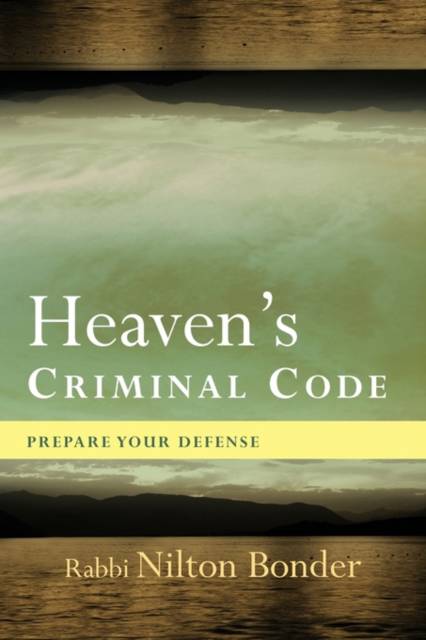
- Retrait gratuit dans votre magasin Club
- 7.000.000 titres dans notre catalogue
- Payer en toute sécurité
- Toujours un magasin près de chez vous
- Retrait gratuit dans votre magasin Club
- 7.000.0000 titres dans notre catalogue
- Payer en toute sécurité
- Toujours un magasin près de chez vous
19,95 €
+ 39 points
Format
Description
One of the most disturbing ideas known to our human imaginations is that of the Final Judgment, the accounting we are called to give at the end of our lives. Born in the depths of our consciousness, this notion of a final judgment is a consequence of our perception that we have priorities and goals in our lives. It is a measurement of just how successful or unsuccessful we have been in the venture of life. This book suggests a possible set of ethics for the individual vis-à-vis his or her own self-ethics that reflect the obligations life imposes on the living. Written in the form of a Criminal Code, this book both in structure and terminology mimic legal documents. The prime goal is to call attention to the deep psychic fusion between what we believe to be divine expectations-that is, those of the Creator-and the expectations of our consciousness. The key postulate of the Biblical text is really this: that Creator and creature communicate with each other through consciousness. More than that perhaps: that Creator and creature blend and merge within consciousness. This Constitution and Criminal Code will thus have to account for projections of both God's desires and the desires of our consciousness. They are structured in the principles laid out in the Ten Commandments and in the punishments of the Ten Plagues, both found in the book of Exodus. The Creator's expectations and punishments correspond to similar expectations and punishments within our consciousness. Employing collective and personal symbolism and the reading of Carl Jung of the Commandments, the book steer away from the morality usually applied when judging, instead allowing the soul's yearnings and aspirations to guide this evaluation of the quality and propriety of life.
Spécifications
Parties prenantes
- Auteur(s) :
- Editeur:
Contenu
- Nombre de pages :
- 164
- Langue:
- Anglais
Caractéristiques
- EAN:
- 9781426941283
- Date de parution :
- 19-09-10
- Format:
- Livre broché
- Format numérique:
- Trade paperback (VS)
- Dimensions :
- 152 mm x 229 mm
- Poids :
- 249 g

Les avis
Nous publions uniquement les avis qui respectent les conditions requises. Consultez nos conditions pour les avis.






